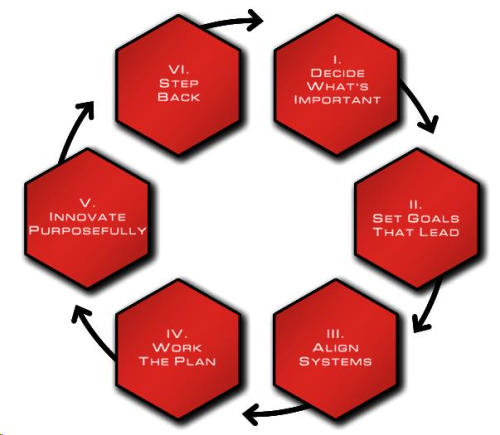Book Recommendation: Six Disciplines for Excellence

Note: this is a re-print of my online book review from August 2, 2006. Since this is such a good book for small businesses and practices ten years later, I have decided to republish it here. I recommend the audio version for sale at Amazon via Audible.
Over the past ten years, I’ve read a wide selection of management/business books. Most of them can be divided into three categories:
- Books that were designed for a large enterprise.
- Books that explain the latest ‘fad,’ trend, or metric.
- Books that focus one aspect (e.g. profits, communication, marketing) that are needed at every firm.
The Six Disciplines for Excellence: Building Small Businesses That Learn, Lead and Last by Gary Harpst is a different and much needed animal for several reasons. First, it was written specifically for smaller shops (including local non-profits) which intrinsically have fewer resources. Second, this book provides a very systematic approach for a company to follow in order to achieve all of its objectives. Third, it is based on real-world experience (vs. theory from a B-School Professor) as the author was CEO of Solomon (now part of Microsoft) and this company was a test bed for the ideas in the book.
Small companies need to strive for excellence from the moment they are conceived. Why? The good ol’ 80/20 Rule! The bottom eighty percent of small businesses will fold within the first 5 years. Of the remaining twenty percent, after 5 additional years, another eighty percent will go out of business. Clearly, only the top firms can effectively compete within our modern marketplace.
Unlike most business books which focus on a few techniques, The Six Disciplines provides a true recipe for success. If a small company can be likened to a chocolate cake, what is outlined here would be how to create one that a chef who had studied at Le Cordon Bleu would be likely to bake.
These are the six disciplines:
- Decide what’s important
- Set goals that lead
- Align systems
- Work the plan
- Innovate purposefully
- Step back
Each discipline is divided into a series of detailed methodologies which every company should be following. As the Bard once wrote “brevity is the soul of wit” and Harpst wisely choose to keep each section short, tight, and concise. In addition, the example charts and graphs provide quick visual clues to help explain the concepts that are discussed.
Although most small companies are already doing a number of the things detailed in the book, this is not enough. Such cafeteria-style management, where only a few procedures are chosen, can result in major weaknesses that can be fatal. The entire cycle is very important.
Harpst makes a great point: determining objectives (disciplines 1 and 2) is fairly easy for most organizations. The hard part for most businesses is the execution itself (disciplines 3 and 4). Most of the time is spent here. I completely agree! I personally have worked for some world-class organizations which have been market leaders in their own niche; yet, each had internal systems (HR, IT, etc.) that got in their own way at times, mostly because they were outdated or had not adapted to work together as part of a single whole larger system.
I highly recommend this short, but very dense volume. A lot of valuable ideas are found here! The Six Disciplines can be used as a guide book for any small enterprise as the majority of the text is a ‘how to’ manual with very clear instructions. I will be using the methodologies outlined for my own business endeavors. Also, if you do not own a business, many of the ideas presented can be easily ported to planning and living for the individual as well. Get a copy of this book, in audio format or paperback.